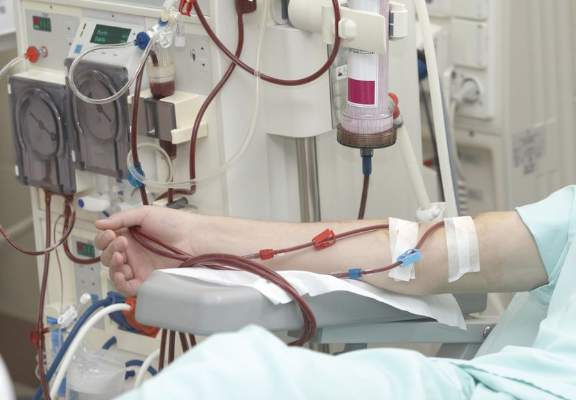FROM KIDNEY INTERNATIONAL
Race, but not coinfection with hepatitis C virus, differentially affects survival of HIV-positive patients who have end-stage renal disease, according to a study published in Kidney International .
Nonwhites fared significantly worse in survival than did the white cohort when both groups were infected with HIV alone, but the two groups fared similarly badly when coinfected with HIV and HCV, according to Deirdre L. Sawinski, MD , assistant professor at the University of Pennsylvania, Philadelphia, and assistant medical director, Penn Kidney Pancreas Transplant Program, and her colleagues.
The investigators retrospectively assessed 410,545 HIV-negative/HCV-negative individuals as reference controls and compared them with 5,348 HIV+ and 1,863 HIV+/HCV+ coinfected individuals from 2,858 dialysis facilities in 47 states, using a database from one of the largest dialysis providers in the country.
They found that HIV infection was not associated with a higher risk of death in white patients (hazard ratio, 1.03), in contrast to HIV/HCV coinfection, which was significantly associated with a higher mortality (HR, 1.48). However, in the nonwhite patients, HIV infection (HR, 1.44) and HIV/HCV coinfection (HR, 1.71) were both significantly associated with increased mortality.
“HIV infection remains associated with inferior dialysis survival for [nonwhites], even in the contemporary era and with widespread ART use,” Dr. Sawinski and her colleagues summarized. “Although the underlying mechanisms of these racial disparities require further elucidation, bias within the health care system could contribute to worse outcomes for [nonwhite] individuals who have HIV, and dialysis providers should work to eliminate disparities in care wherever they are identified.”
They recommended early nephrology referral for transition to renal replacement therapy and care coordination with infectious disease and hepatology specialists, including evaluation for home dialysis, to improve the chances of survival in these patients. Given the added risk of death in coinfected individuals, they also suggested that therapy for HCV may be beneficial.
One author consulted on a project related to hyperkalemia and hyperphosphatemia in dialysis patients and has grant funding from Merck on treating hepatitis C infection after kidney transplantation. The other authors had no disclosures.





